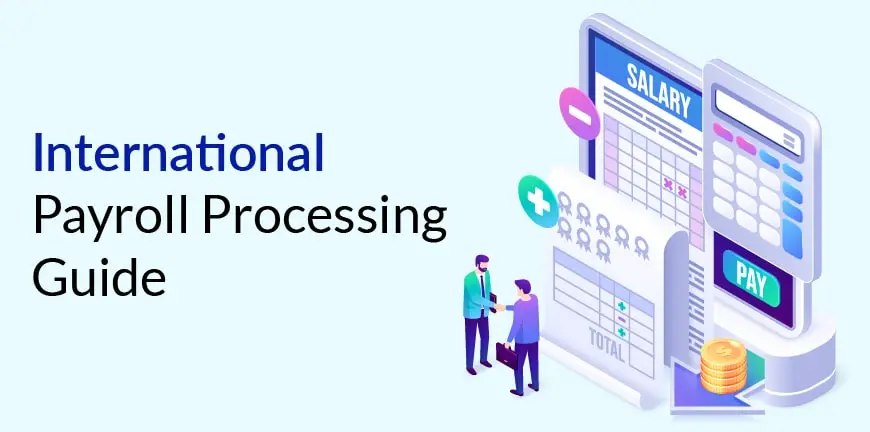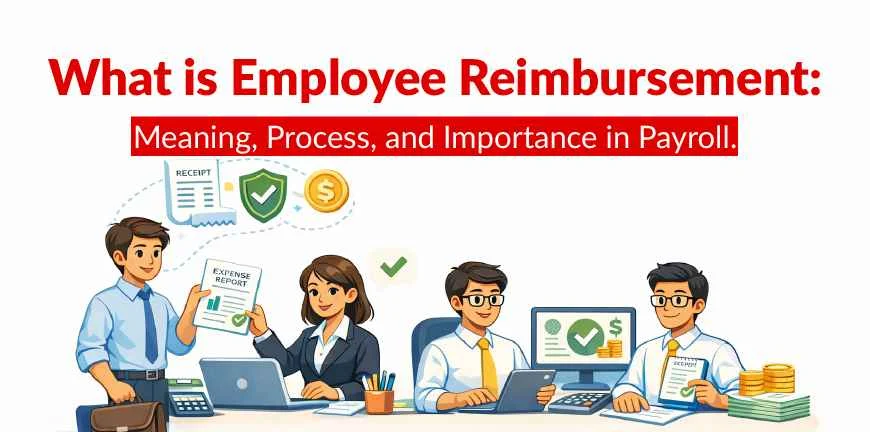
Top 6 Recruiting Ideas for Manufacturing Industry
12/03/2024
9 Tips to Avoid Absenteeism at the Workplace
21/03/2024- What is International Payroll Processing?
- Step-by-Step Guide to International Payroll Processing
- How to Process Payroll for your International Team?
- What does International Payroll Include?
- 2 Types of International Payroll Providers
- Want to Optimize Payroll Efficiency with Alp Consulting?
- Frequently Answered Questions (FAQ)
Before we let you in on all that you need to know about international payroll processing, let’s examine some statistics and insights from credible sources that are relevant to the topic, providing an understanding of the importance of global payroll processing.
According to the EY Worldwide Payroll Survey Report, 35% of businesses lack a formalized payroll strategy, with 28% having a “very low” level of worldwide standardization for payroll operations. Payroll operations were more efficient in organizations that had developed and outlined payroll strategies than in those that did not.
Another recent report by Gartner revealed that 70% of CEOs in the tech industry are dealing with international expansion at some level, at least.
A Deel’s State of Global Hiring Report shows that 89% of contracts created on the platform in 2022 were for remote workers. And naturally, with the expansion of business internationally, the need for the right payroll processing also kicks in. To run a global payroll efficiently, you need to have a good understanding of the local laws and regulations, taxes, and currencies of every country your business operates in. Creating an efficient payroll system, even with all the information at hand, can be challenging at times. This is where you must consider hiring an international payroll processing provider to help streamline your payroll process.
What is International Payroll Processing?
International payroll processing is the management of payments to all employees of your company, working in the main headquarters, foreign workers, and independent contractors alike, for the work they perform for your company.
Often referred to as global payroll processing, while it may sound like your work is cut out by just adding foreign workers or independent workers to your existing payroll process, it doesn’t quite work like that. To process payroll internationally, it’s crucial to have a clear understanding of the global employment laws, tax laws, etc., where your business operations take place, and areas where your workers reside and are performing work for your organization.
Step-by-Step Guide to International Payroll Processing
International payroll processing is, in a lot of ways, similar to local payroll processing, but besides that, there are certain essential elements to factor in before you start processing payroll globally. Here’s a guide to help you understand how to process payroll internationally:
1. Establishment of a local entity
If you are a business looking to expand your business globally and operate in other countries, you must establish a local entity and register it with the right authorities in the countries in which you operate. Maintaining compliance with local tax laws and regulations is an extremely crucial step while running a business. Now, if you aren’t familiar with the rules of establishment or you do not have personnel who understand how to follow through with the procedure, you can engage Alp Consulting’s employment services, and we can help you establish your company’s entity successfully in the respective country by following all the requirements.
2. Understanding the local payroll taxes
Employers must submit the necessary payroll taxes as well as make other essential contributions to the state authorities, respective government bodies, or third parties on time for them to help you support your business operations, ensuring that you remain compliant with appropriate local payroll taxes.
3. Establish a payroll process
Establishing the right payroll process is important for every business. If you are a business operating globally, your payroll processing may include a lot of elements, as you will have to consider the laws and regulations of the countries you are operating in, as well as your parent country’s rules. Some of the things you must consider to successfully establish payroll are:
- Frequency of your Payroll run– As per your business payroll schedule, you may be processing payroll weekly, bi-weekly, monthly, etc. Some countries may have different rules as to how frequently you can run your payroll, while in other areas it solely depends on the business, the type of employees, and other factors.
- Types of employees– You may have different types of employees working for your organization, like full-time employees, part-time employees, contractors, or freelancers. To pay each type of employee, there are different requirements that you must follow and process payroll accordingly.
- Employee benefits– Every company offers benefits along with compensation. When it comes to global payroll processing, any benefits you offer, as well as those that are mandated by local jurisdictions, must be accounted for.
- Payment to employees– You must determine how you will be paying your employees, i.e., digitally, direct deposits, cheques, or pay cards, and others. While payments are generally made through direct deposits, you can choose any one of the above means to make payments, ensuring compliance with local laws and regulations.
4. Filing of payroll documents
Filling out the right paperwork is critical before receiving compensation. As an employer, you must make sure that employees are issued the right forms and are filled out correctly. Wrong forms or incomplete information can lead to many compliance issues and fines. Once employees are registered successfully on the payroll system, they can be given a payroll number for easier identification.
5. Processing payroll
Now that you have successfully set up the payroll, it’s time to run it! Depending on your payroll schedule, by the end of each pay period, you must pay your employees their rightful compensation aptly by calculating their work hours, overtime, leaves, and deduction of taxes, along with other benefits if applicable. Once you make the payments, you must issue employees’ pay slips/paystubs to give them a clear understanding of all the cuts or extras their compensation includes, to avoid any disputes.
6. Maintain proper payroll records
Managing the international payroll itself is quite a task. To ensure there are no problems while processing payroll, you must maintain detailed payroll records. While it may seem unnecessary, you may face inquiries from regulatory authorities in case of payroll disputes that employees may raise, or other bumps you may hit along the way.
How to Process Payroll for your International Team?
When it comes to processing payroll for your international team, you can either do it in-house or outsource it to an international payroll process provider such as Alp Consulting, who are experts in the field and is aware of local laws and employment laws, and can help improve your efficiency and maintain your compliance with laws.
1. Use payroll software
Use automated payroll software that can easily manage tax withholding and calculations, deductions, benefits, and compensation so that the right amount is paid to each employee, leading to an error-free payroll process. However, not all payroll software supports international payroll processing, in which case you must turn to a payroll provider.
2. Choose a global payroll service provider
Global payroll providers, such as Alp Consulting, are third-party companies specializing in payroll services. Before you choose your international payroll provider, do some research about the company and make sure a contract is signed before you hand over your payroll needs.
– Make sure that the payroll provider you choose has access to in-country and international expertise
– Can work independently without the help of in-house payroll specialists
– Do not require a license.
What does International Payroll Include?
International payroll is an umbrella term to describe the process of onboarding, management, and payment made to employees globally. There are three basic services offered by international payroll processing providers-
1. Global employment services
If you do not own an entity in the country where your employees live, global employment services can help. Global payroll providers can employ individuals on your behalf under the model of employer of record. Under this model, your employees are still your employees, but their paperwork is managed by a global payroll provider that allows them to work legally in that country, preventing any legal implications.
2. Localized payroll processing services
Even if you do own a legal entity in the country, international payroll processing services can help process payroll on your behalf and can handle the benefits administration. But remember, in this case, they are not responsible for your employees or any legal obligations, as they are not employing your employees on your behalf.
3. Contractor payment services
Suppose your company wants to work with someone in another country but does not want to employ them full-time. An international payroll processing partner can help you pay these independent contractors.
2 Types of International Payroll Providers
Global payroll providers are of two types. Depending on your international payroll needs, you may choose the one that suits you best.
1. Partner-dependent international employment solutions provider
Partner-dependent international employment solutions providers outsource their services to third parties within the different countries where they operate. These third-party service providers take over the entire payroll process and ensure that the employees are professionally managed and paid accurately and on time.
2. Owned entity global employment solution providers
These types of providers provide comprehensive payroll services, including benefits, compliance, and tax services for employers hiring in foreign countries. The advantage of owned entity global employment solution providers is that they own local entities in the countries where they provide services, so they do not have to outsource to third parties.
Want to Optimize Payroll Efficiency with Alp Consulting?
Processing international payroll in-house is a serious undertaking. Doing it incorrectly can have legal ramifications that disrupt your business’s ability to hire global talent. But fortunately, it doesn’t need to be that way. Alp Consulting’s global payroll solutions simplify your payroll management.
We take care of your onboarding and compliance regulations so that you can focus on your day-to-day operations and other core competencies. Connect with us to better understand how we can help you grow beyond borders.
Frequently Answered Questions (FAQ)
1. Can Indian companies pay foreign employees?
Indian corporate law provisions allow Indian companies pay employees of their subsidiary companies outside India. Therefore, it is possible for an Indian company pay employees outside India.
2. How do you calculate payroll?
To calculate gross pay for salaried employees, one must multiply the employee’s total yearly salary by the number of pay periods in a year. On the other hand, for hourly employees, the gross pay is calculated by multiplying the number of hours worked by the hourly wage.
3. What is multinational payroll outsourcing?
Multi-country payroll outsourcing is the business practice of delegating global payroll to a third-party service provider. This payroll provider handles payments and taxes for international teams.
Contact Us For Business Enquiry

Yugandhara V. M
Yugandhara V. M serves as the Assistant Vice President – HRO at Alp Consulting Ltd., bringing over 14 years of rich experience in Human Resource Outsourcing, payroll management, and statutory compliance. He specializes in driving process excellence across HR operations, ensuring seamless service delivery and compliance with labor laws. Yugandhara’s expertise lies in managing large-scale client engagements, optimizing HR processes, and implementing efficient workforce management systems that enhance organizational performance. He also leads comprehensive payroll services, ensuring accuracy, timeliness, and compliance for diverse client portfolios.




